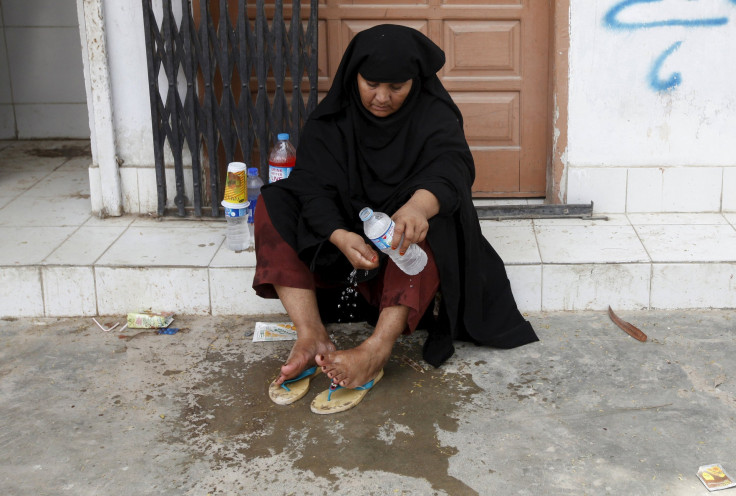Pakistan Ramadan Heat Wave: Fatwa By Islamic Cleric Let Muslims Break Fast Amid Scorching Weather

In the midst of a record-breaking heat wave that has killed 750 people, senior Islamic clerics in Pakistan have issued rare religious pronouncements, or fatwas, this week allowing Muslims to forgo the Ramadan fast. Mufti Mohammad Naeem, the head of the biggest madrassa in Karachi, Pakistan’s largest city and the hardest hit by the heat wave, said the life-threatening consequences of the scorching 113-degree temperatures make breaking the fast permissible, particularly for people with medical conditions.
"If an expert doctor says that your life is threatened due to the heat, or some condition you may have is going to get worse because of fasting, then you can forgo the daily fast," Naeem told NBC News, in a report published Wednesday. "This is conditional on your medical condition and how you react to the heat, not a free-for-all."
Muslims observing the Ramadan fast do not eat or drink from dawn to dusk during the holy month, in one of Islam’s most sacred observances. The obligation only applies to able-bodied Muslims, with exemptions made for the elderly, sick, pregnant or those who are traveling.
Conservative Muslim-majority countries like Pakistan outlaw eating and drinking in the daylight hours during Ramadan, something that has exacerbated the challenge faced by manual laborers and street vendors who work outside in the sun during the day as they brave the heat.
Despite the legal prohibition, Naeem dismissed the idea that his pronouncement would create controversy. "When life is threatened, when our body needs sustenance, then even the Shariat [religious law] allows us to eat pork,” he said. “So if you're diabetic or dehydrated medically, you don't have to fast."
Other prominent clerics have echoed Naeem’s call. “We have highlighted on various television channels that those who are at risk, especially in Karachi where there is a very serious situation, should abstain from fasting,” said the Islamic scholar Tahir Ashrafi, in comments reported by Agence France-Presse.
“Islam has drawn conditions for fasting. It is even mentioned in the holy Quran that patients and travelers who are not able to bear fasting can delay it and people who are weak or old and are at risk of falling sick or even dying because of fasting should abstain,” he added.
Pakistan’s Prime Minister Nawaz Sharif ordered the army to establish special medical centers to treat people suffering from heat stroke on Tuesday as criticism mounted over his government’s handling of the crisis. Electricity outages have increased since the start of Ramadan, restricting the use of air-conditioning and fans as temperatures have soared to over 110 degrees this week.
The majority of the 750 dead from the heat have occurred in Karachi, a city of around 20 million people. A representative for one of Pakistan’s largest charities said that their two morgues in the city had received more than 400 corpses and were now at capacity.
© Copyright IBTimes 2025. All rights reserved.






















